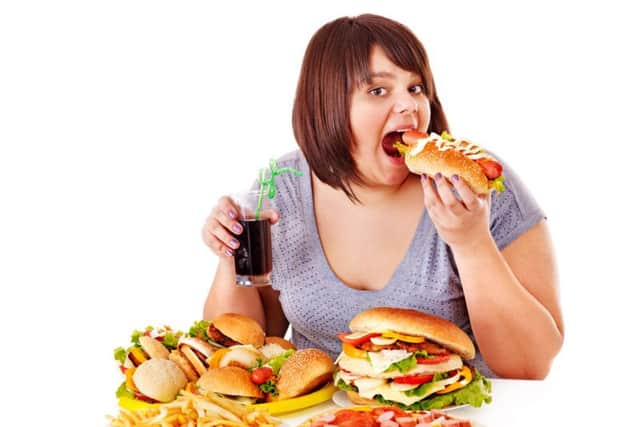What's really eating you? Crack your bingeing code


Lisa has dropped from 18 stones to 12 stones, in a recent magazine interview she claimed that she’s much happier.
The actress lost her mother to cancer in 2012 and feels that she didn’t grieve her mother’s passing properly, realising now that she turned sub-consciously to food in her grief avoidance and was binge eating for comfort.
Advertisement
Hide AdAdvertisement
Hide AdResearch reveals that more than 725,000 people in the UK are affected by an eating disorder, the main disorders are cited as anorexia, bulimia and binge eating disorder (BED). Binge eating disorder is characterized by compulsively overeating huge amounts of food while feeling powerless to stop.


For many, binge eating is a way of comforting ourselves and coping with distressing emotions. But why turn to food for comfort? Binge eaters might ask themselves why they can’t be addicted to exercise for comfort instead of chips? An explanation of why we look to food for solace is this; as human beings our first experience of being loved and nurtured and having a feeling of bonding and connection is the experience of being fed.
A baby is cradled safely in the parent’s arms as they look lovingly into each other’s eyes. It is a state of great comfort, security and bliss.
Using food for comfort is in some ways a means of getting back to that blissful place of safety and contentment that we ideally all felt as a baby.
Advertisement
Hide AdAdvertisement
Hide AdTurning to food is an unconscious way of substituting food for a relationship, we don’t just want comfort, we want to be comforted. For many individuals, relationships with people can be problematic. Most of us have been let down, rejected and hurt by unpredictable human beings, whereas food is always there and it’s always the same.


For many people, a relationship with food can feel safer than a relationship with people.
Like Lisa Riley, when my father died, I turned to food for comfort. I
’ve never been good at expressing my emotions, perhaps that’s why I write, I didn’t cry copiously or speak about my grief to anyone because a part of
Advertisement
Hide AdAdvertisement
Hide Adme was afraid that it would unleash a tsunami of feelings that I couldn’t possibly control.
However, if we don’t express feelings, they don’t go away and we can end up turning to food to numb our emotions.
You don’t have to be grieving to begin emotional eating. Lots of people have no idea what emotions they are feeling inside or what is driving them to seek refuge in food.
According to psychoanalyst Dr Nina Savelle-Rocklin, who specialises in body image and disordered eating, the foods that we crave can crack the code of what’s eating us emotionally. She believes that the foods we hunger for are an indication of what we are hungry for in our lives.
Advertisement
Hide AdAdvertisement
Hide AdFor example, if you have a craving for crunchy food like crisps, chomping down on crunchy foods can be a physical way of expressing anger, it’s a way of taking the anger you feel about a situation or anger you feel towards others and turning it on yourself.
Then you’re mad at yourself for over eating. The question to ask is; who or what would you be mad at if you were not angry at yourself for eating? A craving for ice cream, yogurt and smooth textured foods suggest a longing for nurturing and comfort.
Sweet food cravings can be a code for needing or wanting more sweetness in your life, more kindness, friends, love and tenderness. If your craved food is pizza, pasta, bread, these foods are correlated to loneliness as they are bulky and symbolically fill an internal void.
Over eating isn’t about willpower, binging can be compared to a weed.
Advertisement
Hide AdAdvertisement
Hide AdIf you chop the top off a weed, the root is still there and regrows. You need to find out what is causing your need to fill up with food.
To overcome emotional eating we need to find out the emotions and conflicts that lead us to binge eat and find new ways to process them. We can do this by perhaps joining a group to combat loneliness or going to the GP who can
give advice and maybe arrange for counselling to get to the root of the problem.
Dr Nina’s emotional code breaking theories are certainly food for thought. If you are interested in learning more visit www.winthedietwar.com